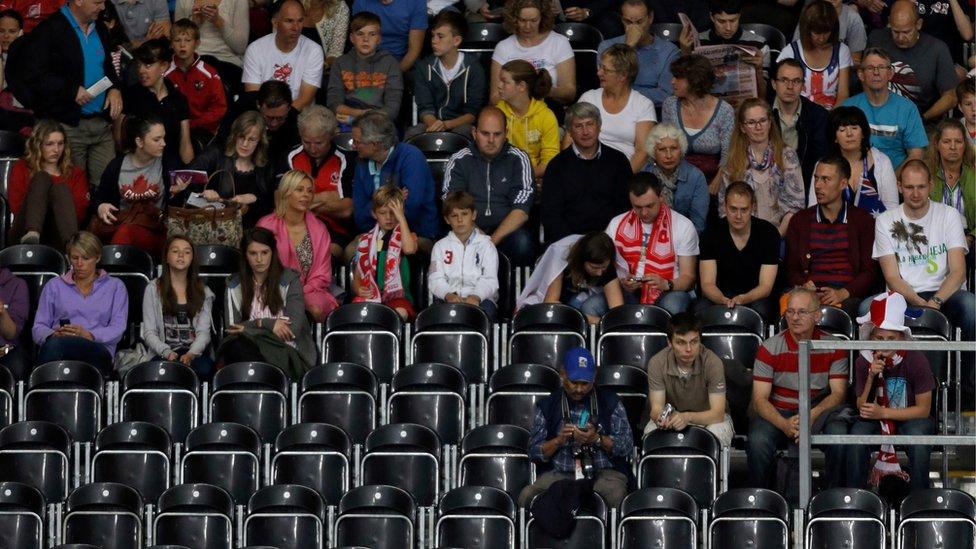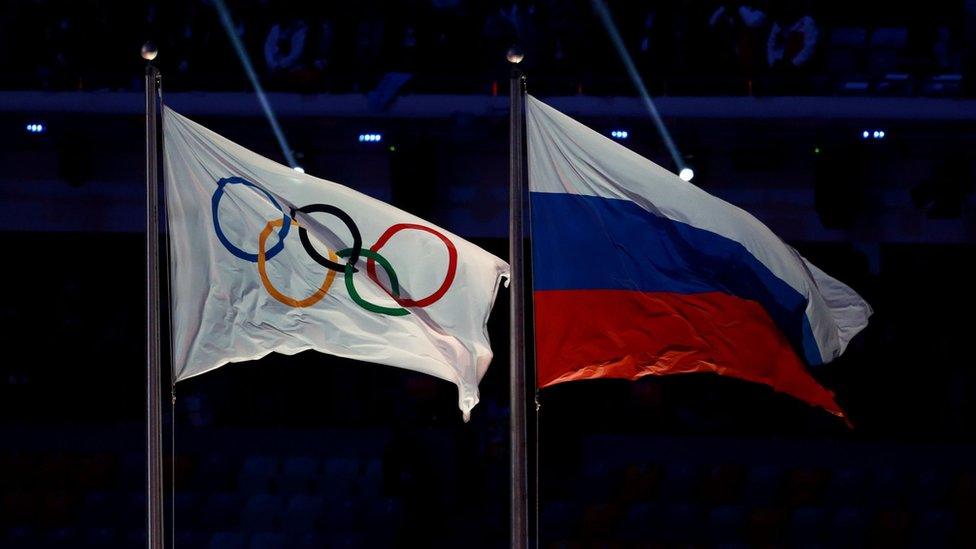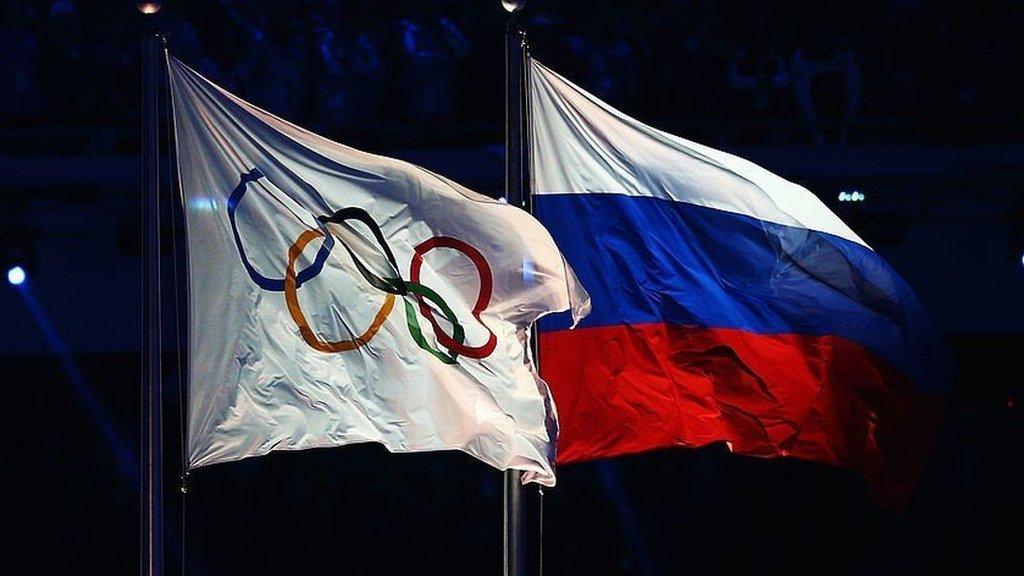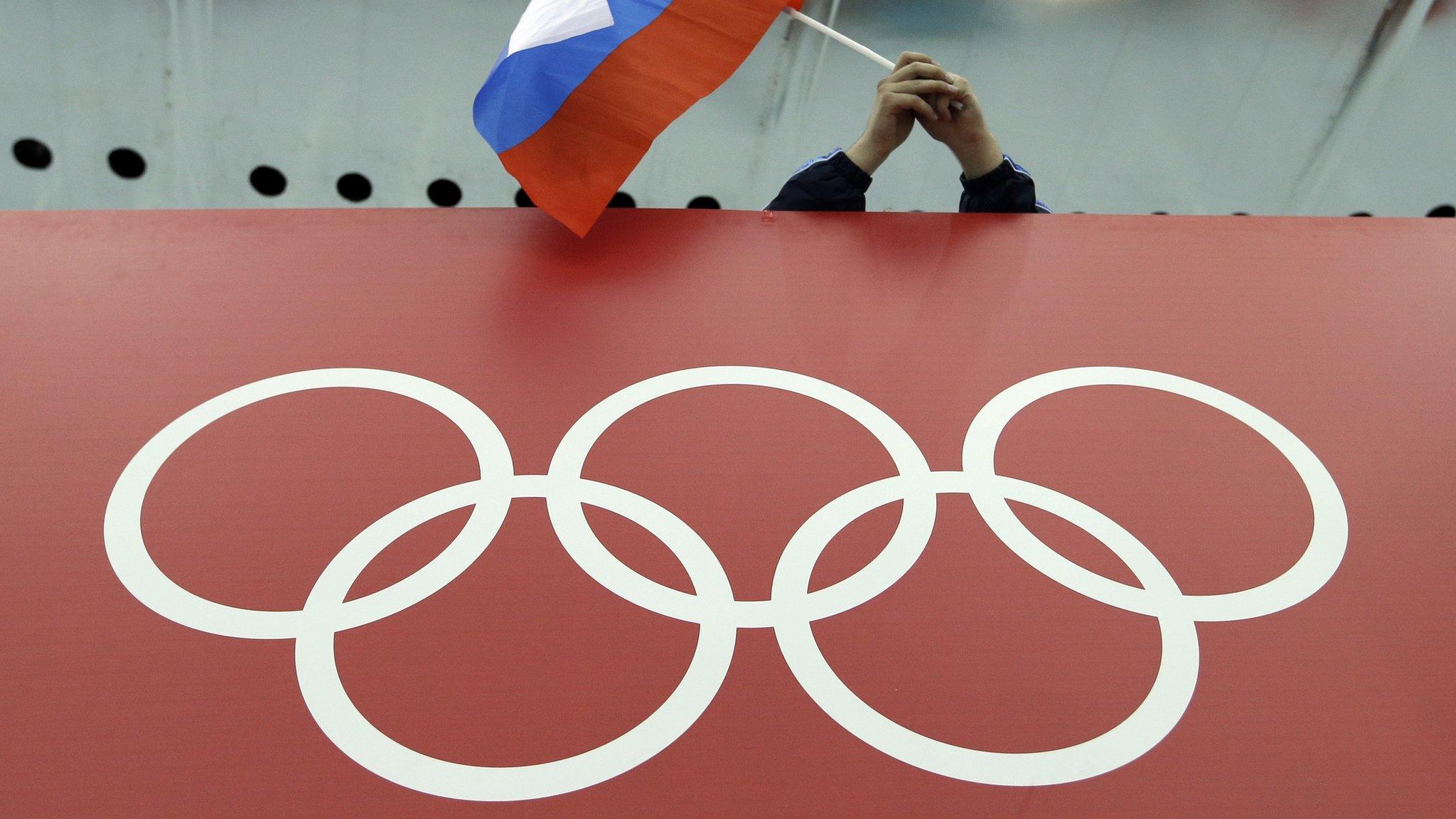Doping scandals reduce interest in Olympics, says BBC survey
- Published

Citizens of developed nations were least likely to link Olympic success to national pride
Doping scandals have reduced public interest in the Olympics, according to a poll for the BBC World Service.
A majority of 57%, from 19,000 people surveyed across 19 countries, said doping has had "a lot" or "some" negative effect on the level of attention they will pay the Games.
Respondents from Germany and the host nation, Brazil, were least affected.
An average of 62% of citizens also said their country's performance has "a lot" or "some" impact on national pride.
Olympic success had the greatest impact on national pride among respondents in emerging economies such as Indonesia, Kenya, Russia, Peru and India.
National pride in Brazil, Germany, the US and France appeared least affected by Olympic success.
Doug Miller, chairman of GlobeScan, the firm that carried out the survey, said the poll results "also underscores the important role the World Anti-Doping Agency [Wada] plays in protecting the Olympic franchise."

The IOC has rejected calls for a blanket ban on Russian athletes at the Rio Games
Earlier this week, Wada criticised the International Olympic Committee (IOC) for rejecting its recommendation to ban Russia from the Rio Olympics, due to start on 5 August.
An investigation commissioned by Wada claimed this month that Russia has been operating a state-sponsored doping programme across the "vast majority" of summer and winter Olympic sports.
A majority of people in 13 of the 19 countries polled said the use of doping would reduce their interest in the Olympics.
Citizens of South Korea, Peru, Australia and France were most likely to lose interest in the Games because of doping, according to the survey.
However, only 35% of Germans and 36% of Brazilians said they would be put off by the Games on that account.
The survey was conducted between December 2015 and April this year.
- Attribution
- Published25 July 2016

- Attribution
- Published24 July 2016
